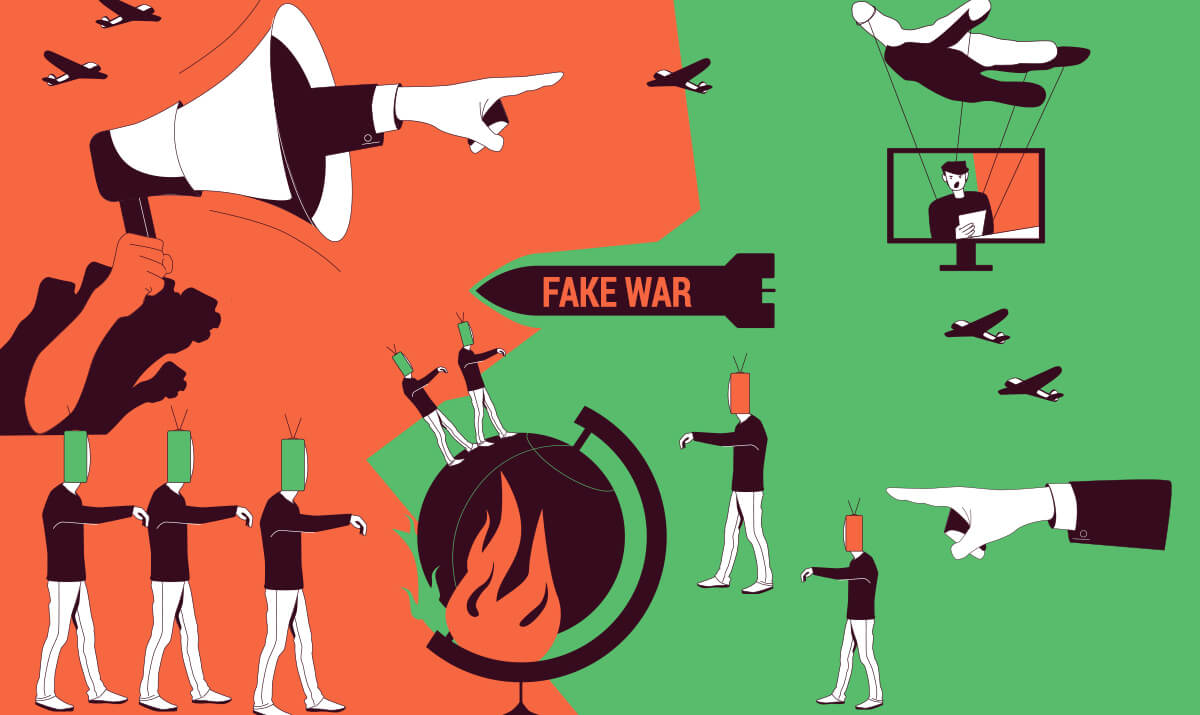FAKE WARS: The role of disinformation, misinformation and fake news in conflicts
In the modern era, information is not merely a tool for enlightenment.
It has become a weapon wielded in the complex theater of war. The rise of fake news as a strategic instrument poses a significant threat, with global leaders recognizing the power of knowledge as a means to shape narratives and control perceptions. In this article, we will explore the multifaceted relationship between warfare, communication, and the deliberate spread of misinformation.
The “weaponization” of information
In times of conflict, the battlefield extends beyond physical borders into the realm of information warfare. Leaders understand that controlling the narrative is crucial, as public opinion, both domestic and international, can significantly impact the course and outcome of a conflict. The strategic use of fake news becomes a means to manipulate public sentiment, sow discord among adversaries, and influence the global perception of the conflict.
Shaping narratives for strategic advantage
Leaders recognize the potency of narratives in shaping public opinion. By disseminating carefully crafted narratives, they seek to justify actions, garner support, and undermine the morale of opponents. Fake news becomes a tool to create a distorted version of reality, blurring the lines between fact and fiction, and fostering confusion that serves the interests of those orchestrating the disinformation campaign. For example, a Russian propaganda campaign has utilized thousands of fake accounts on TikTok to spread misinformation about the war in Ukraine: this videos, as BBC said, aimed to undermine support for Kiev, falsely claiming that senior Ukrainian officials and their family members had purchased luxury cars or villas abroad after the invasion in February 2022.
“Divide and Conquer”
Fake news is not only about spreading falsehoods but also about exploiting existing divisions. In times of war, leaders may leverage social, political, or ethnic fault lines to deepen rifts within and between societies. By sowing discord and amplifying existing tensions, they create an environment conducive to achieving their strategic objectives.
Recognizing the pervasive impact of fake news in war, there is a growing emphasis on developing strategies to counter disinformation. Fact-checking initiatives, international collaborations, and efforts to promote media literacy are becoming vital components of a collective defense against the weaponization of information.
The power of knowledge is harnessed as a formidable weapon, and leaders strive to influence communication to gain a strategic advantage. As citizens and global observers, understanding the dynamics of this information war is crucial to maintaining a discerning eye and ensuring that the pursuit of truth prevails over the manipulation of facts.


